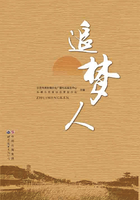In addition to the lack of fuller information on data compilation by which the exceptions and "erratic" differences may be explained, natural reasons are important. If fixed and share rents are to be compared, they must be expressed in the same dimensions, either both in fixed values or both in percentage values. However, share rents calculated and expressed in terms of fixed (monetary) values (as in table 10) will exhibit lower absolute rents with a bad harvest, and the converse with a good harvest. On the other hand, fixed (crop) rents expressed in percentage values will exhibit higher percentage shares with a bad harvest, and the converse with a good harvest. Only in a normal year, ceteris paribus, can the risk premiums for share rents be accurately revealed. At any rate, the implication of the tax-equivalent approach, that the rental receipt under a share contract is necessarily lower than that under a fixed-rent contract, is refuted by evidence.
It is hoped that the risk premiums of different contractual arrangements will be investigated further.
[1]. See Legislative Yuan, Statistical Monthly 2.5 (1930).
[2]. Department of Internal Affairs, Public Reports of Internal Affairs 2; vols. 1 and 2 (1932). See also Legislative Yuan, Statistical Monthly, 2.5 (1930).
Bibliography
Adams, Warren. "Reflections of Recent Land Reform Experience in Iraq." Land Economics, May, 1963.
Alchian, Armen A. "Private Property and the Relative Cost of Tenure." In The Public Stake in Union Power, ed. Philip Bradley. University of Virginia, 1959.
__"Some Economics of Property Rights." Mimeographed.Santa Monica: The Rand Corporation, 1963.
Bator, Francis M. "The Anatomy of Market Failure." QuarterlyJournal of Economics, August, 1958.
Betham-Edwards, ed., Arthur Young's Travels in France during the Years 1787, 1788, and 1789. London: George Bell and Sons, 1892.
Bottomley, Anthony. "The Effect of Common Ownership of Land upon Resource Allocation in Tripolitania." Land Economics, February, 1963.
Bray, J. O. "Farm Tenancy and Productivity in Agriculture: The Case of the United States." Food Research Institute Studies, vol. 4, no. 1 (1963).
Buck, John Lossing. Chinese Farm Economy. Chicago: University of Chicago Press, 1930.
__An Economic and Social Survey of 102 Farms near Wuhu, Anwhei, China. Nanking, 1923.
Note: An asterisk indicates that the work is available only in Chinese; quotations from these sources are my translations.
__An Economic and Social Survey of 150 Farms, Yehshan County, Hopei, China. Nanking, 1926.
__Farm Ownership and Tenancy in China. Shanghai:National Christian Council, 1927.
__Land Utilization in China. Chicago: University of Chicago Press, 1938.
__, ed. Land Utilization in China —Statistics-A Study of16,786 Farms in 168 Localities and 38,256 Farm Families in Twenty-Two Provinces in China, 1929-1933. Nanking: University of Nanking, 1938.
Bull, Frate. "Philippine Land Reform, 1950-1958." International Cooperation Administration, USOM/Philippines. Manila, 1958.
*Chang, Pe-Yu, and Wang, Yin-Yuen. Questions of Farm Tenancy in China. Chungking: Commercial Press, 1943.
Chang, Yen-Tien. "Land Reform in Taiwan." Mimeographed report no. 1. Taichung: Department of Agricultural Economics, 1954.
Chen, Cheng. An Approach to China's Land Reform. Taipei:Cheng Chung Book Company, 1951.
__Land Reform in Free China. Taipei: Free China Review,1953.
__Land Reform in Taiwan. (Taipei: China Publishing Co.,1961.
*__Records of Taiwan Land Reform. Taipei: Chung Hwa Book Company, 1961.
*Chen, Ching-Moh. Land Rents of Various Provinces in China.Shanghai: Commerical Press, 1936.
Chen, Han-Sheng. Landlord and Peasant in China. Shanghai:Kelly and Walsh, 1936.
*Chen, Tang-Yuen. Systems of Land Tenure in China. Shanghai:Commercial Press, 1932.
Cheng, Hsiao. The Theory and Practice of Land Reform in China. Taipei: Chinese Research Institute of Land Economics,1953.
Cheung, Steven N. S. "Private Property Rights and Sharecropping." Journal of Political Economy, December, 1968.
__"Transaction Costs, Risk Aversion, and the Choice of Contractual Arrangements," Journal of Law & Economics, April, 1969.
*Chiao, Chi-Ming. A Social and Economic Study of Farm Villages in China. Nanking: University of Nanking, 1938.
* China Economic Research Department. Source Materials of Recent Chinese Agricultural History, 1912-1927. Peking: United Book Store, 1957.
*China Land Bureau. Rules and Regulations of Land Administration. China: National Government, 1947.
*Chinese National Government. Shengching Route Economic Report. 1931.
* Chung Sen Department of Education. Papers on Land Rent Problems in China. Shanghai: Commerical Press, 1937. Coase, Ronald H. "The Nature of the Firm." Economica, November, 1937.
__"The Problem of Social Cost." The Journal of Law and Economics, October, 1960.
Committee on Census of Agriculture. General Report on the 1961 Census of Agriculture. Taipei, 1963.
Demsetz, Harold. "The Exchange and Enforcement of Property Rights." Journal of Law and Economics, October, 1964.
Department of Agriculture and Forestry. Taiwan Agricultural Yearbook, 1948 Edition. Taiwan: Provincial Government,1948.
__Taiwan Agricultural Yearbook, 1949 Edition. Taiwan: Provincial Government, 1949.
__Taiwan Agricultural Yearbook, 1950 Edition. Taiwan: Provincial Government, 1950.
__Taiwan Agricultural Yearbook, 1951 Edition. Taiwan: Provincial Government, 1951.
__Taiwan Agricultural Yearbook, 1952 Edition. Taiwan: Provincial Government, 1952.
__Taiwan Agricultural Yearbook, 1953 Edition. Taiwan:Provincial Government, 1953.
__Taiwan Agricultural Yearbook, 1958 Edition. Taiwan: Provincial Government, 1958.
* Department of Internal Affairs. Public Reports of Internal Affairs, 2.1. China, 1932.
*__Public Reports of Internal Affairs. 5.1 and 2. China,1932.
* Department of Real Estates. China Economic Yearbook. Shanghai: Commercial Press, 1935.
*_____China Economic Yearbook. Shanghai: Commercial Press, 1936.
Dore, R. P. Land Reform in Japan. London: Oxford University Press, 1959.
Eicher, C. K., and Witt, L., eds. Agriculture in Economic Development. New York: McGraw-Hill Book Co., 1964.
*Executive Yuan. Changes in Land Rights. China, 1942.
Fisher, Irving. The Theory of Interest. New York: Macmillan Co., 1930.















